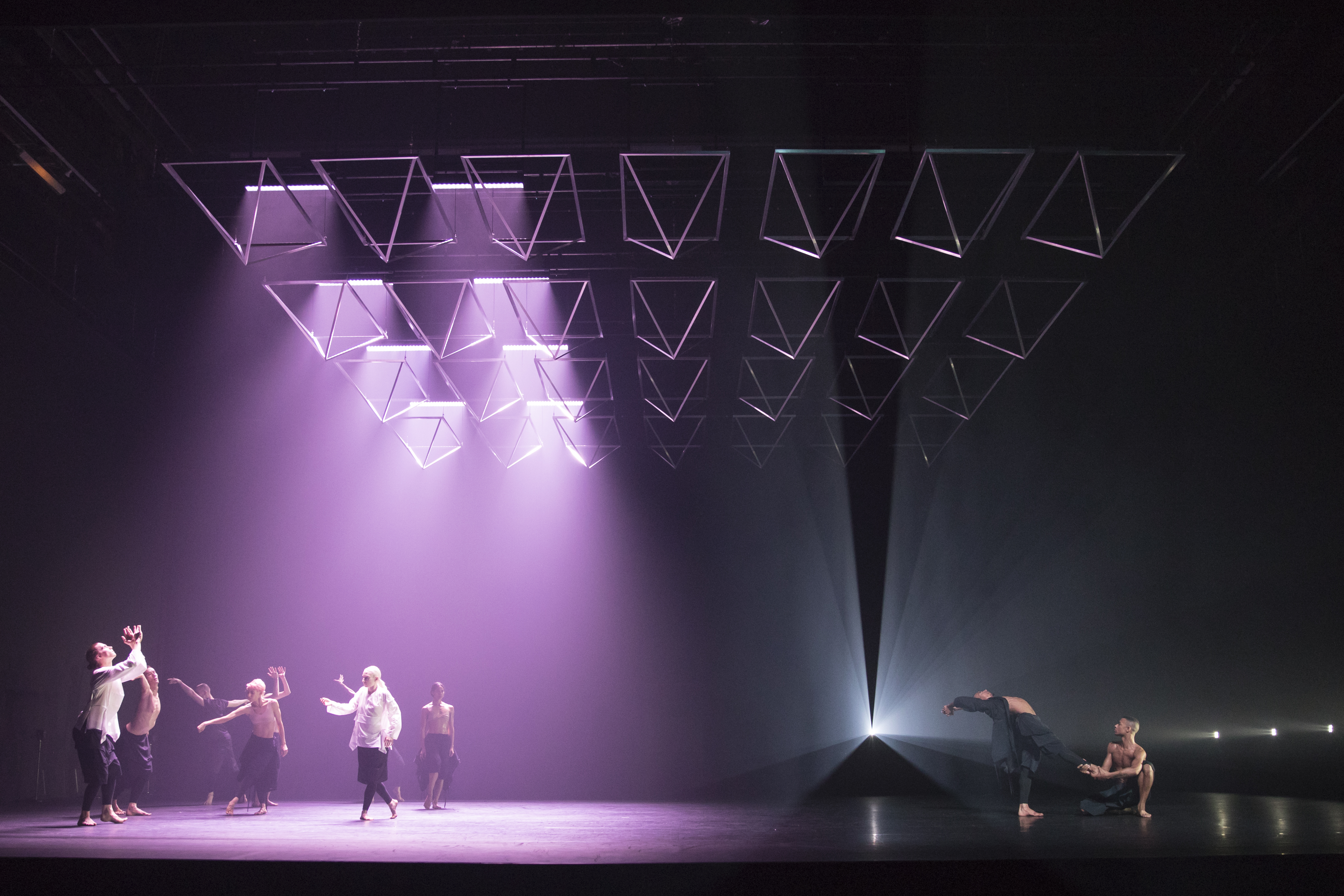ST. LOUIS, MO — It’s become easier than ever to learn about ourselves, with mail-in genome readers like 23andMe and Ancestry.com giving you more information than you might ever need to know about your health, family and cultural background based on a swab of saliva.
But what does one do with such powerful information? Knowing about your genome can inform (and disrupt) some of life’s most important decisions, such as when or if to have children, steps to delay or prevent disease, or aligning oneself with a particular cultural background or identity based on genes.
These are some of the 21st century’s most compelling ethical questions, and part of what inspired Company Wayne McGregor’s “Autobiography.”
“Autobiography” was performed one night only Feb. 27 at the Touhill Performing Arts Center.
You might expect a this-then-that linear tale, like you might read in a written autobiography. By using dance to create his “self-life-write” — or auto-bio-graphy — artistic director and choreographer Wayne McGregor proposes that life is not always linear.
And not always under our control, either. McGregor fashioned 23 chapters, to be continuously rearranged according to an algorithm developed by Nick Rothwell. In the St. Louis iteration of 13 of these sections, I felt a distinct and delicate balance between order and chaos that comes from knowing more than perhaps we should about ourselves.
McGregor’s work routinely plays in extremes, and “Autobiography” is no exception. Black and white costumes — separates by Aitor Throup which are continuously rearranged throughout the evening — are illuminated by Lucy Carter’s dramatic lighting. Rows of LED strips hang above the stage next to a striking grid of upside-down pyramids by Ben Cullen Williams. The lights are perfectly coordinated to scroll in time with a pounding electronic score by Jlin, a former steel mill worker from Gary, IN who seems to mash all the sounds of her former profession to find a bizarre kind of rhythmic beauty.
These elements are often shrouded by a thick haze about the stage and complemented by a hyper-flexible, balletic, gender neutral movement vocabulary which firmly plant McGregor’s work in an aesthetic which feels “extra,” as the kids say. But, though maximal on its surface, “Autobiography” shares a lot with minimalism. Repetitive, linear, ballet movement, often off-kilter from traditional lines, selected by chance, and utilizing the latest technology… well that sounds a lot like Merce Cunningham. More so than any other McGregor work I’ve seen, this is minimalism; his modern and post-modern influences are so clearly evident here. And that says something about roots, but has nothing to do with his genome.
“Autobiography” always starts and ends the same way, with a single dancer anchoring section 1, Avatar, and section 23, Choosing. In between, the algorithm was dance-heavy at the start, a non-stop, frenzied series of sections like 15 (Instinct), 22 (Remember) and 16 (World). When they arrive at 19, called Aging Ageing, the stage softens for a moment, showing a bit more humanity in these otherwise nonchalant, seemingly apathetic dancers. Two-thirds of the way through, Section 7, Traces, gives the first respite from Jlin’s driving, dominating sound, replaced by Baroque music which sounds like Bach or Corelli. I would have loved it if that’d happened once or twice more.
And that’s the thing: Maybe Jlin, McGregor and his dancers would’ve loved that, too. But “Autobiography’s” trajectory — the shape of the dance or the journey it takes us on — are not dictated by its creators. It’s such a perfect metaphor for the interplay between nature and nurture, a reminder that, no matter how much we seek to control our lives, the beginning and end of everyone’s autobiography are basically the same. What happens in the middle is a combination of the decisions we make, dumb luck, and maybe the result of an algorithm by Nick Rothwell. For me, those lines of thought and the questions which arise from “Autobiography” are far more interesting than the dance itself.
Header photo of Company Wayne McGregor’s “Autobiography” by Andrej Uspenski
